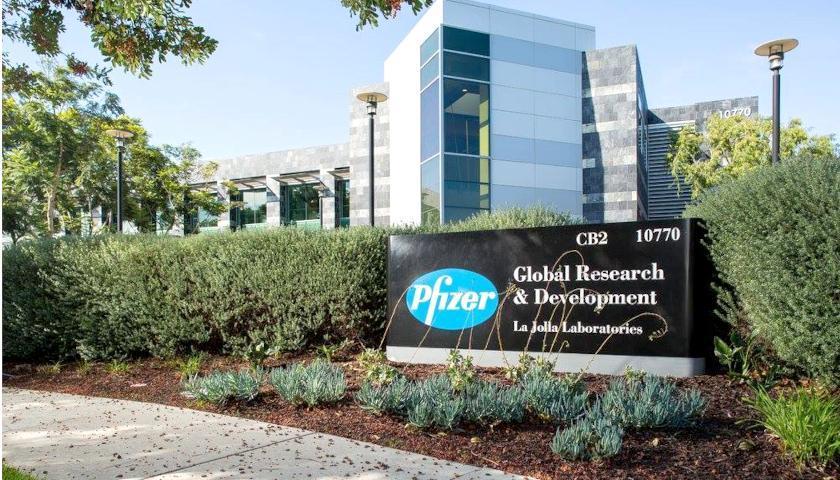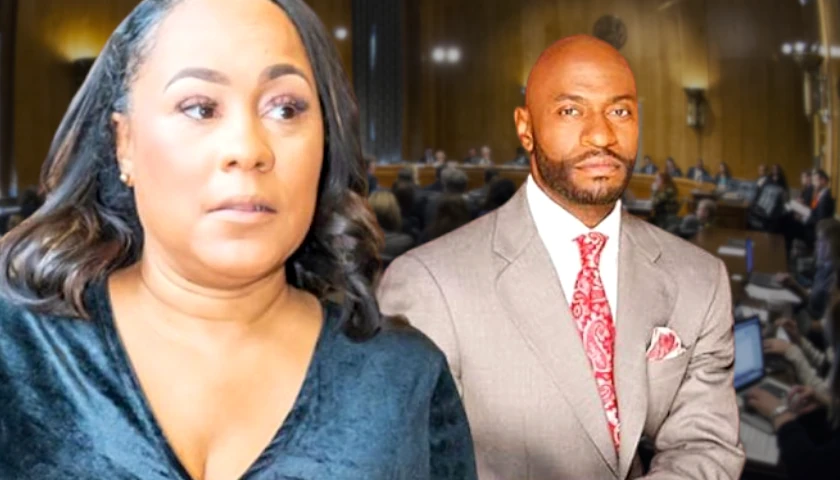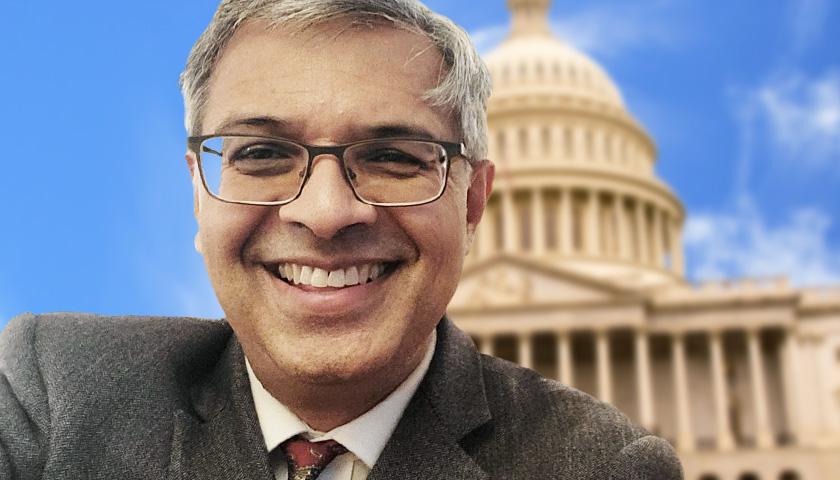by Greg Piper
“If it’s COVID, Paxlovid.”
There may be a reason Pfizer chose that curious tagline in the drugmaker’s once-inescapable commercials for its COVID-19 oral antiviral – the subject of a “Saturday Night Live” parody – which cost U.S. taxpayers at least $12 billion before the feds tightened the spigot last fall and Pfizer jacked the price to $1,390 for a five-day course.
The nirmatrelvir-ritonavir combination marketed as Paxlovid does no better against so-called long COVID than a placebo taken with ritonavir, according to a new “original investigation” quietly released Friday in JAMA Internal Medicine, published by the Journal of the American Medical Association.
A 15-day course showed no statistically significant differences in “improving fatigue, brain fog, body aches, cardiovascular symptoms, shortness of breath, or gastrointestinal symptoms” in a randomized clinical trial of 155 participants with “postacute sequelae of SARS-CoV-2 infection,” all but two of them vaccinated, the Stanford Medicine-led paper says.
The Biden administration poured in another $515 million to study the biologically elusive, highly subjective condition in February, on top of $1.15 billion dedicated in 2020, STAT reported. The CDC’s in-house journal claimed last year that George Washington University near the White House had a 36 percent long COVID rate.
The Paxlovid results are even worse for Pfizer than at first glance because ritonavir is “actually a harmful product when taken by someone who doesn’t need it,” according to University of California San Francisco epidemiologist Vinay Prasad, who previously criticized the decision to pair the placebo with the HIV/AIDS drug.
The study authors, who include three Pfizer employees, tried to downplay their findings even while noting both intervention and control groups showed improvement in symptoms.
“It is important to underscore that this study alone does not rule out NMV/r as a potential therapy for PASC,” they wrote. “PASC is likely not a single entity, and therefore, treatment will likely differ among PASC subtypes.”
It’s the latest research-related headache for the Biden administration that could also come back to haunt a second Trump administration, both of which shelled out billions to develop and purchase pricey COVID therapeutics based on assumptions not addressed by clinical trials.
The COVID treatments targeted for suppression by the Biden White House, public health agencies and social media platforms, meanwhile, are getting a second look.
The journal Clinical Infectious Diseases has yet to correct a falsehood in its widely cited 2021 “systematic review and meta-analysis” of ivermectin for treating COVID, that all five RCTs showed no effect on all-cause mortality.
One of them, published in the Asian Pacific Journal of Tropical Medicine, actually showed average mortality of 3.3 percent in “ivermectin treated arms” and 18.3 percent in the “standard care and placebo arms.”
A March paper in The Japanese Journal of Antibiotics, flagged by “The Epoch Times,” said CID didn’t fix the article even after the RCT author complained that it got his results backwards. Oxford University Press, which publishes CID, told Just the News to ask its journals publicity department for a response, which did not come by Tuesday night.
Yuhong Dong, a former “pharmacovigilance leader” at Novartis, wrote in the Times in April that ivermectin trials were “designed to fail” by underdosing patients and telling them to take it on an empty stomach, inhibiting ivermectin’s absorption, even though its maker Merck says first eating a “high-fat meal” leads to a “2.5-fold increase in bioavailability” relative to a “fasted state.
COVID vaccines were never studied for their ability to prevent infection and transmission of SARS-CoV-2, yet officials from then-Centers for Disease Control and Prevention Director Rochelle Walensky to President Biden continued making faith-based assertions long after the fact of breakthrough infections – known to Walensky by January 2021 – became clear.
House Judiciary Committee Republicans last month threatened to subpoena the CDC for vaccine efficacy data after the agency “only provided cursory responses” to Administrative State Subcommittee Chair Thomas Massie’s questions in October and December letters and 37 “substantive” pages while omitting “portions of email correspondence” it previously produced.
The Kentucky Republican said the CDC has refused to correct its claim that vaccines were “92 percent effective” in people with prior infection, which is not based on Pfizer’s trial data or the Food and Drug Administration’s analysis of them, the New York Post reported.
We know officials at @CDCgov lied about vaccine efficacy and natural immunity.
I told @HHSGov Assistant Secretary Egorin that continuing to withhold information about this cover-up is unjustifiable. pic.twitter.com/po8nWRFLvf
— Thomas Massie (@RepThomasMassie) May 20, 2024
One of President Biden’s first acts in office was purchasing another 200 million mRNA vaccine doses to complement the 400 million under his predecessor, with the goal of making the two-dose therapeutics available to all 300 million Americans by summer 2021.
The approved Pfizer, Moderna and Novavax vaccines for 2023-2024 target the long-outdated Omicron variant lineage XBB. As of May 14, the CDC recommends one dose of the latest formulation for everyone 5 and older, possibly more for children under 5 to get “up to date,” and another dose as early as every four months for people 65 and up.
A week later, University of Oxford researchers published a preprint study of English children ages 5-15, not yet peer-reviewed, that found myocarditis and pericarditis only appeared in vaccinated children, contradicting mainstream medical claims that COVID itself poses a greater risk of heart inflammation. Their vaccinations provided “transient” protection from infection.
The Biden administration spent more than $12 billion on Paxlovid through early December 2022, according to a Reuters report at the time. Pfizer reported $18.9 million from Paxlovid in 2022 under emergency use authorization, months before it received full FDA approval.
Pfizer disclosed in October it reached an agreement with the feds to provide Paxlovid for free to federally insured patients through 2024 and uninsured or underinsured patients through 2028.
The two-drug cocktail actually performed better in unvaccinated high-risk groups than did Pfizer’s vaccine, according to a 2022 study in Clinical Infectious Diseases.
President Biden, then-COVID adviser Anthony Fauci, first lady Jill Biden and Walensky all got “rebound” infections following Paxlovid courses between the initial federal purchase and late 2022 re-up, however. A study by Mass General Brigham in the Annals of Internal Medicine last fall found a 20 percent rebound rate with “shedding of live and potentially contagious virus.”
Fauci ignored FDA guidance by taking a second course after Pfizer CEO Albert Bourla recommended it, though the agency soon ordered Pfizer to conduct just such a trial.
The White House invoked Paxlovid’s supposed 90 percent reduction in the risk of hospitalization or death when bragging two years ago it had committed to purchase 20 million courses, “more than any other country in the world,” without noting it was citing a Pfizer-run RCT not applicable to the vast majority of Americans at the time.
Emergency medicine physician Matt Bivens laid out the problems with Paxlovid in research and practice, including its new market price exceeding that of gold and “appalling conflict of interest” in Pfizer running the RCT, in the April edition of Emergency Medicine News.
The boosters’ central claim that Paxlovid is “stunningly effective” and “life-saving” – the term used by Mass General Brigham to play down the rebound rate – relies on the Pfizer RCT known as EPIC-HR conducted during the Delta variant wave in 2021, published in the New England Journal of Medicine in February 2022, Bivens said.
Like the White House, the CDC touted the study in its in-house journal – which is not peer-reviewed – without noting Pfizer ran it, and claimed the literature shows no “consistent association between” the “lifesaving” treatment and rebound.
Pfizer drastically limited the study’s applicability by excluding people with “previous confirmed SARS-CoV-2 infection” and the unvaccinated. While eligible patients received treatment within five days of symptom onset, Pfizer inexplicably narrowed the population even further by only analyzing those treated within three days, Bivens emphasized.
Pfizer didn’t respond to queries Monday and Tuesday for its response to the criticism.
The Cochrane research collaborative identified 13 ongoing studies of Paxlovid and three “awaiting classification,” in addition to the Pfizer RCT and a Chinese Lancet study of “hospitalized adult patients with severe comorbidities,” in a November systematic review.
The most the researchers could say for unvaccinated high-risk outpatients is Paxlovid “may” reduce deaths and “improve patient condition” but “probably … has little effect on any unwanted events” and increases “treatment-related unwanted events.” They are “very uncertain” what it does for inpatients.
Several of the identified studies, including three more EPIC trials, are “Pfizer-backed” yet “had gone radio silent,” Bivens wrote. It’s as if Pfizer were to “fund 20 studies, keep quiet about 19 of them, and trumpet the 20th” in a prestigious journal “along with a never-ending churn of low-quality observational data” to get uncritical media coverage, he said.
– – –
Greg Piper is a reporter for Just the News.
Photo “Pfizer Research Lab” by Pfizer.






it never worked and trashes your kidneys.
criminal.
people should be facing prison. starting with fauci